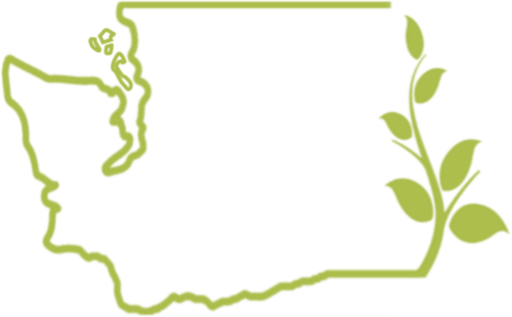
Seeds For Thought
A newsletter of the Master Gardener Foundation of Washington State
November 2024 – Volume 24, Issue 4
From the President
~~ Tana Hasart, MGFWS President
Next >>>
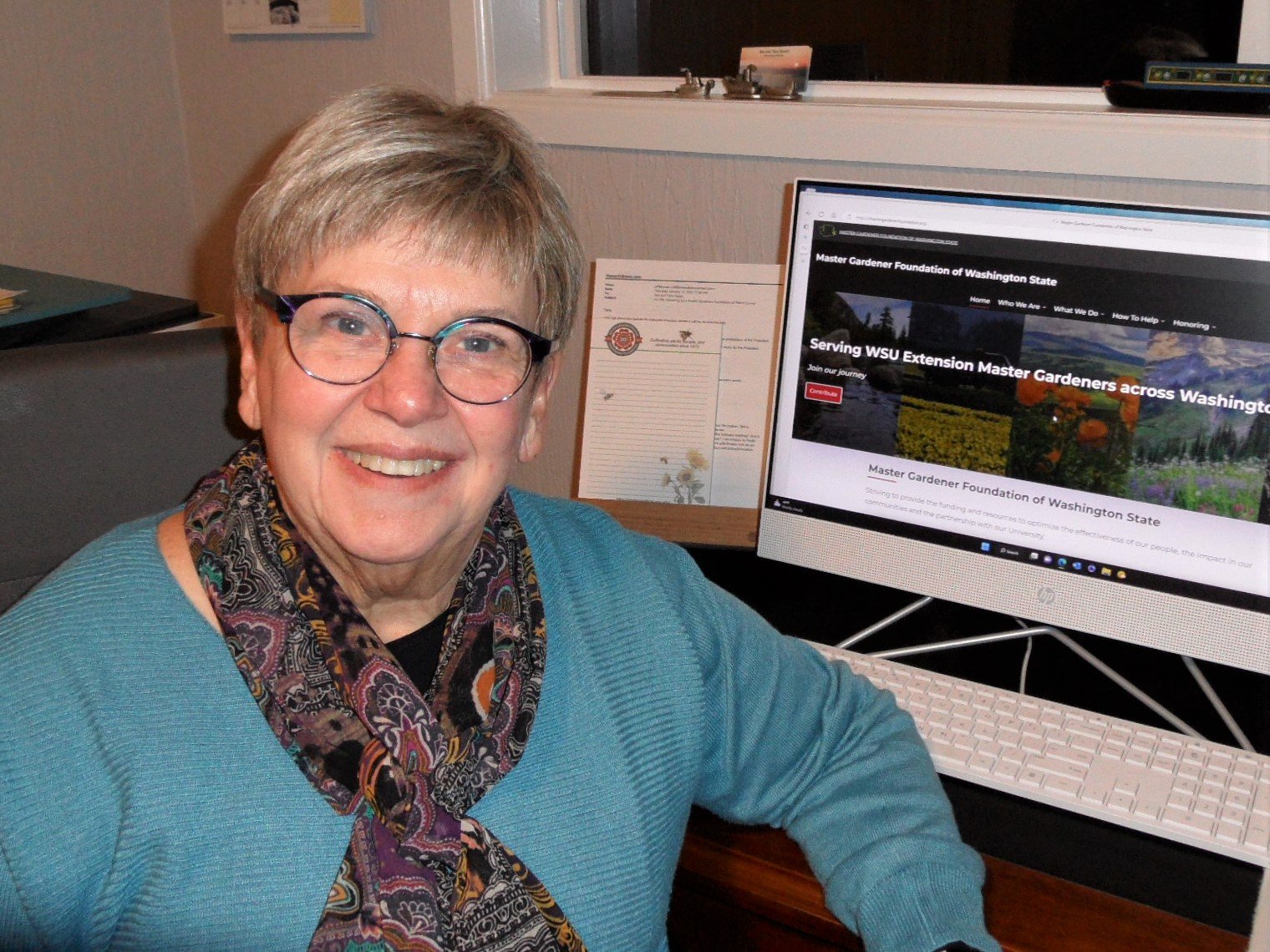
I must admit to enjoying these fall days. The air is crisp, providing an ideal time to get outdoors and complete those last-minute chores. Fall is a time of year that allows us, as gardeners, an opportunity to look back on past experiences while looking forward to what next year will bring. When it comes to the Master Gardener Foundation of Washington State, that is exactly what we are doing.
Our report on 2024 accomplishments is getting a final look. In 2022, five strategic directions were selected to guide foundation work. An initial discussion in October’s MGFWS Executive Committee meeting revealed progress, areas for review, and the need to clarify and better use our planning process. The report will be a focus for our November board meeting, followed by data collection to inform our work for 2025. The landscape (pun intended) within which the MGFWS operates has changed appreciably during the last two years, so working with the board to update our goals is an important undertaking.
On the horizon is February’s Northwest Flower and Garden Festival, planning for AEC 2025, an update of our Memorandum of Agreement with the University, and making progress on the Endowed Faculty Chair campaign. We encourage everyone to help shape the future of your MGFWS, stay informed about the progress being made on your behalf, and find ways to support our statewide unifying work.
So, as the weather winds toward winter, picture me with a cup of tea and a pair of binoculars. Helping to identify what’s on the horizon is important work, and I encourage each of you to join in celebrating the past and setting a vision for the future.
Tana
From the Statewide Program Leader
~~ Jennifer Marquis, WSU Extension Master Gardner Program Statewide Leader
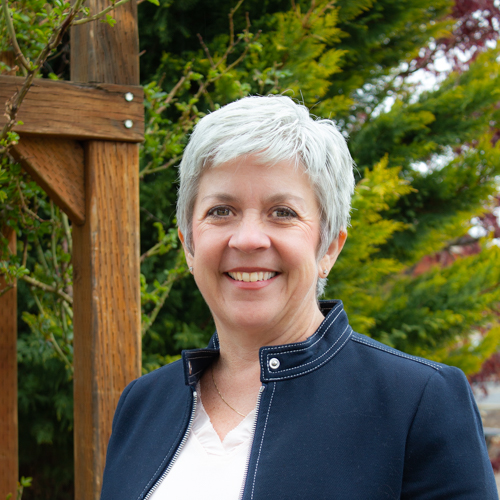
Fall is upon us! The gardening season is coming to a close. In fact, I harvested the last of my tomatoes and peppers just this past weekend (Oct 13). I’m hoping they’ll ripen in the window, but we may be eating a few fried green tomatoes.
The statewide program just sent medium-term follow-up local food, biodiversity, and water conservation surveys to find out what people did because of what they learned from the 2024 WSU Extension Master Gardener Programs. We had about 200 participants complete our short-term knowledge-gained surveys across these three program priorities.
Here are the results for local food. The WSU Extension Master Gardener Program improves food access and individual and community health and wellness for a resilient Washington. Short-term knowledge gained survey revealed:
- Attendees increased their knowledge of selecting appropriate varieties of food plants to grow in their area by 26%
- Attendees increased their knowledge of growing vegetables their family likes to eat by 23%
- Attendees increased their understanding about the connection between access to local food and individual and community health and wellness by 14%.
- Attendees increased their understanding by 11% that easy access to nutrient-dense fruits and vegetables improves individual and community health and wellness.
- Attendees increased their understanding by 20% about how they can help increase food security in their community.
We also collected information about what participants intend to do because of what they learned i.e., mulch to conserve water, select seeds or plants suitable for the climate, protect pollinators, donate food to a local food bank or pantry, and share extra produce with neighbors and friends. The follow up, medium-term survey that we recently sent will tell us how many of our attendees did what they said they would do. I can’t wait to see how many people successfully improved their gardening practices to the extent that they had a plethora of fruits and vegetables to donate to food banks and to share with friends and family.
We will use this data and similar data from surveys distributed for our other program priorities to help us tell and compelling and impactful story about the tangible differences that Extension Master Gardeners make in the communities they serve. Be on the lookout for our annual report and keep an eye on our priorities to read about the differences we make related to our other program priority areas for a resilient Washington.
We launched our program evaluation plan in 2024 and about 5 counties participated. We received about 200 responses. In 2025, I’d like to have at least 10 counties participate and receive 1000 responses. We need you, the Extension Master Gardener volunteer to help us reach this goal. To that end, I’m going to share some resources. I know we are barely putting our gardens to bed for 2024, but as you begin to think about your 2025 WSU Extension Master Gardener outreach, please use the tools we have created for you. Plan with the end in mind. Use the Program Priority Toolkit and associated tools of the trade. The tools can be found in our Program Priority Library.
I extend my personal thanks and heartfelt gratitude for the time you give, the passion you bring, and the commitment you hold for the WSU Extension Master Gardener Program. Enjoy the remainder of 2024 with family and friends.
A Solstice Story: Darkness and Light in the Garden
~~ Barbara Faurot, Jefferson County Master Gardener
The winter solstice, December 21 this year, marks the longest night of the year in the northern hemisphere. As the sun appears at its lowest point in the sky, we celebrate the return of longer days of light. The solstice marks a turning point for plants and their pollinators, too.
Plants rely on the daily rhythm of darkness and light to sustain life. They have a remarkable ability to sense changes in the amount of darkness each day and respond by preparing for new growth.
Plants use sunlight for photosynthesis, building their energy reserves during the day. But at night, they need darkness. Respiration and energy use increase, stimulating new growth. Plants also regenerate a key compound known as phytochrome during the night. A type of photoreceptor protein, phytochrome plays a role in almost every stage of plant development.
Nighttime lighting — sometimes known as ALAN, or Artificial Light at Night — can reduce the ability of plants, trees, and shrubs to create phytochrome. ALAN can also disrupt the life cycles of pollinators, affecting their ability to find food, reproduce, sleep, and escape predators.

Photo courtesy of Dunn Gardens
Some species of birds, moths, bats, and insects rely on moonlight and starlight for navigation and orientation. About half of insect species are nocturnal, and most pollination occurs at night. One study showed that ALAN can reduce nocturnal visits to plants by more than 60% compared to dark areas.
Cycles of light and darkness also influence seed germination, root development, bud and flower formation, fruit set, and dormancy. For some plant species, nighttime lighting throughout the year can suppress flowering, cause crops like lettuce and spinach to bolt, or prevent strawberries from blooming.
Deciduous trees turn leaf compounds into sugars and deliver them to the roots for storage prior to the leaves falling. The trees then form buds of special leaf-like structures that protect next year’s growth. Artificial lighting can “fool” a deciduous tree into retaining chlorophyll in its leaves too late in the season. This can result in leaves that are larger and more susceptible to stress during the growing season.
While there are no local standards for private property lighting, home gardeners have options to minimize the impact of artificial light on plants and wildlife. Lights can be shielded and directed towards the ground to keep the light away from shrubs and trees. This improves safety by illuminating pathways and avoiding blinding glare. Lights can be turned off or dimmed during off-peak hours.
Warm-toned lights like soft white, amber, pink, or orange are less disruptive to plants and pollinators than bright white or blue lights. The non-profit DarkSky International suggests using LEDs and compact fluorescents (CFLs) with warm-colored bulbs. Visit their website for specific recommendations.
What about holiday lights? Given the short holiday season, there is little cause for special concern. To make holiday lighting more friendly to the night sky, consider using fewer lights, avoiding flashing lights, and choosing warmer-colored bulbs. Timers that turn them off at night can help save energy.
As we approach the solstice and a new year, consider the effect of darkness and light on our plants and those that depend on them. Jefferson County Master Gardener Sarah Fairbank encourages us to appreciate both the science and the art of light and darkness. “Celebrate the dark, the night silence, look up in awe and wonder, be moved, and dream. Try to figure out what we see, the mystery, and the absolute beauty.”
For further reading, Dark Sky International’s latest research can be found at Dark Sky at Night 2023 Research Report.

Photo courtesy of Dunn Gardens
Updated from a column first published in the Port Townsend Leader December 13, 2023.
2024 WSU Master Gardener Advanced Education Conference
~~ Debbie Benbow, 2024 AEC Lead and Chelan/Douglas County Master Gardener
The 2024 WSU Extension Master Gardener Advanced Education Conference (AEC), held virtually on September 27-28, was a tremendous success. With over 630 registrants from Washington, Canada, and across the country, the event united a diverse group of gardening enthusiasts and experts.
Participants enjoyed live classes over the two days, with the added benefit of recorded sessions available until December 1. This feature of the virtual format provided greater flexibility and accessibility, allowing attendees to revisit the valuable content at their convenience. Additionally, AEC recordings are available for purchase for those who missed the initial registration.
Cathi Lamoreux and her team did an outstanding job recruiting top-notch presenters, delivering a rich and engaging program. Joyce Fraizer’s exceptional promotion through emails and social media significantly contributed to the event’s high turnout.
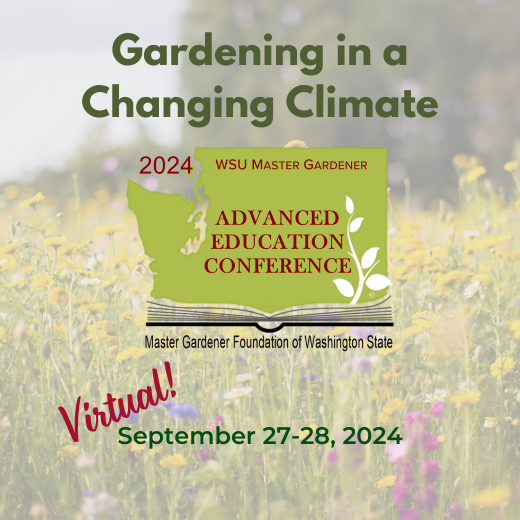
Keynote speaker Rebecca McMackin received rave reviews for her talk on ecological horticulture. The conference featured thirty-seven classes that provided valuable insights into sustainable gardening practices. Highlights included sessions on climate-resilient gardening, sustainable soil management, native plant landscaping, and pollinator-friendly gardens. Attendees also explored urban gardening innovations, integrated pest management, water-wise gardening, edible landscaping, gardening for wildlife, wildfire preparedness, and advanced composting techniques.
Special thanks to Live Oak Audio Video for their stellar coordination of the recordings and sessions. Their responsiveness and technical support ensured a smooth experience for all participants.
Thank you to everyone on the 2024 AEC planning team, the Master Gardener Foundation of Washington State, WSU faculty and staff, our presenters, and our generous sponsors for making this conference a resounding success. Overall, the conference highlighted the benefits of a virtual format while maintaining the high standards of education and community engagement that the WSU Extension Master Gardener Program is known for.
2024 WSU Master Gardener Awards
Master Gardener of the Year: Debra Benbow
The WSU Extension Master Gardener of the Year award recognizes an exceptional WSU Extension Master Gardener volunteer who has demonstrated an unwavering commitment to the Extension Master Gardener (EMG) Program. This award is sponsored by the Master Gardener Foundation of Washington State.
Debbie devotes extensive time and skill to the WSU Extension Master Gardener Program (EMG) as the current and past WSU Extension Master Gardener Advanced Education Conferences (AEC) director (2018, 2023, and as co-director in 2024), media and graphics designer for both the EMG Program and Master Gardener Foundation of Washington State (MGFWS) websites, and marketing and communication expert. She often has the most creative ideas, is the best problem-solver, and raises their hand first as a volunteer to accomplish both large and small projects. Few aspects of either state of local programming are not enhanced by the work of Debbie.
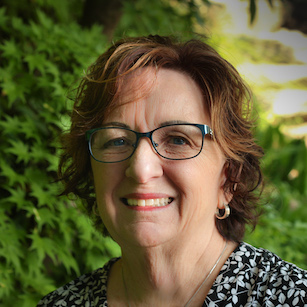
Ed LaCrosse Distinguished Service Award: Mike Peronto
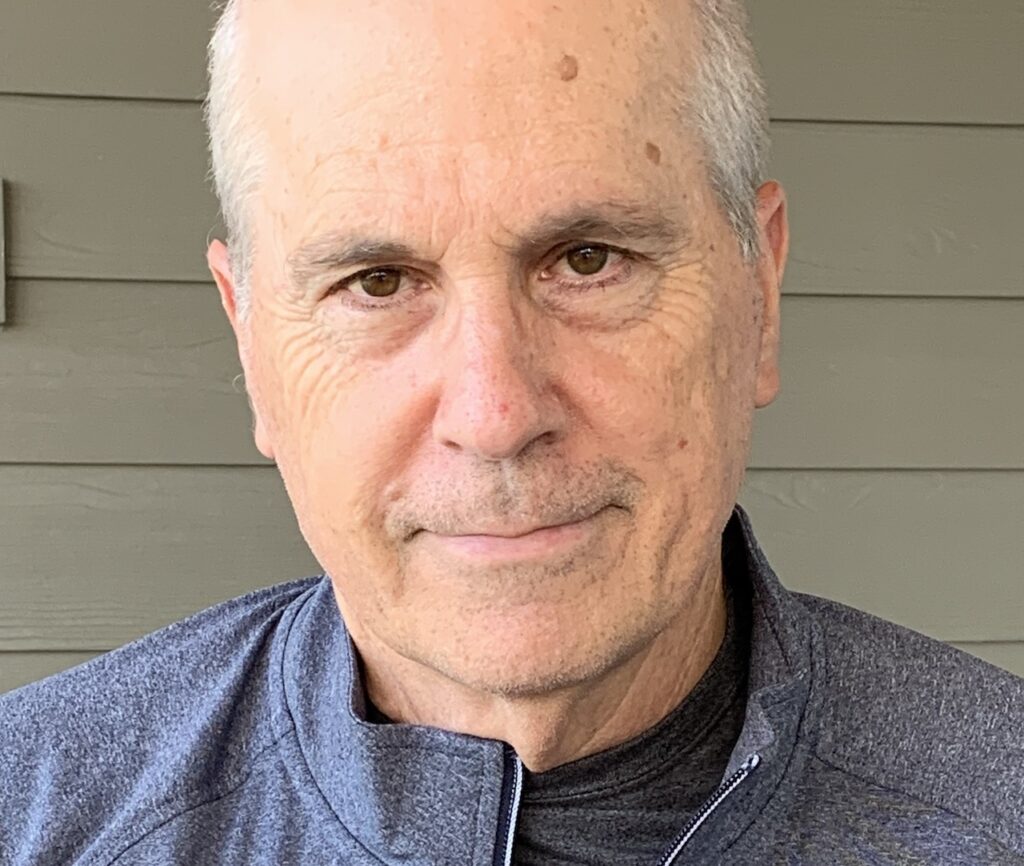
This Lifetime award recognizes someone who has had a significant statewide (or broader) impact on the WSU Extension Master Gardener Program or has acted on behalf of the Master Gardener Foundation of Washington State. Nominees need not be an Extension Master Gardener (EMG).
As project manager, Mike has led the overhaul of the state WSU Extension Master Gardener (EMG) Program website, the Unified Foundation Website (UFW) Project and operations, and the county EMG website templates. He also initiated the Climate Action Group, spearheading EMG climate change activism and public outreach. We all benefit immensely from Mike’s talents, skills, and dedication.
Media Award: Erin Hoover
The WSU Extension Master Gardener Media Award, sponsored by the Master Gardener Foundation of Washington State (MGFWS), recognizes an individual who frequently contributes to one or more Washington media covering garden topics, education, demonstrations, etc. emphasizing the WSU Extension Master Gardener Program and making a significant and enduring positive impact on the program.
Erin is a master of various media forms, most notably for “Seeds for Thought” and, more recently, the The Evergreen Thumb Podcast. Erin has created two highly effective media tools that engage the public in the exceptional work of WSU Extension Master Gardener volunteers. The contribution of Erin’s time and talent is immeasurable, setting a benchmark for other local media efforts. No other Washington EMG media initiative is more effective in reaching a diverse audience interested in horticultural education.
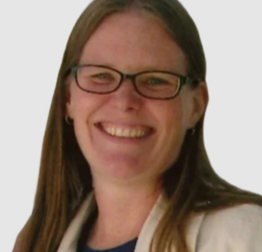
Seeds for Thought is a quarterly publication of the Master Gardener Foundation of Washington State. Submissions, corrections, and comments can be emailed to the Editor, Barbara Faurot
Seeds for Thought Copyright 2016-2024 Master Gardener Foundation of Washington State